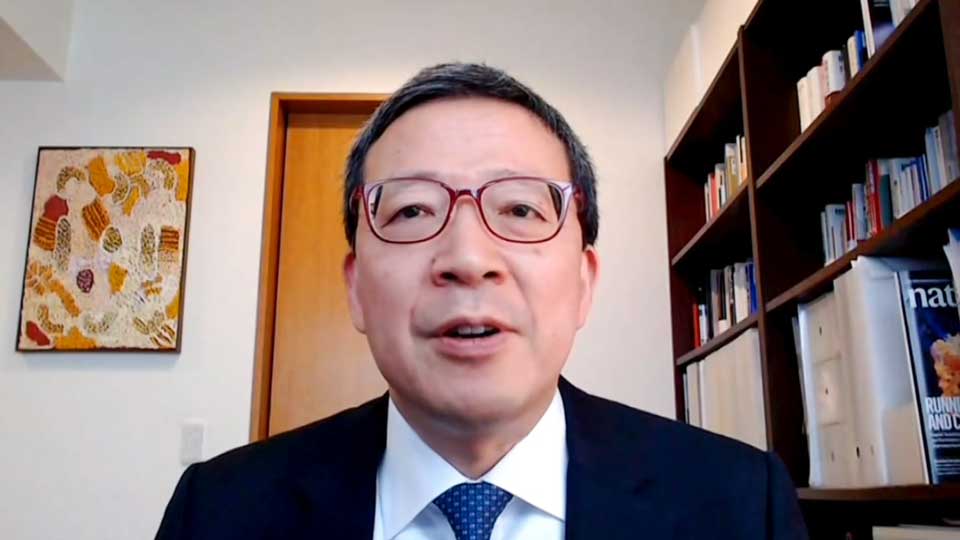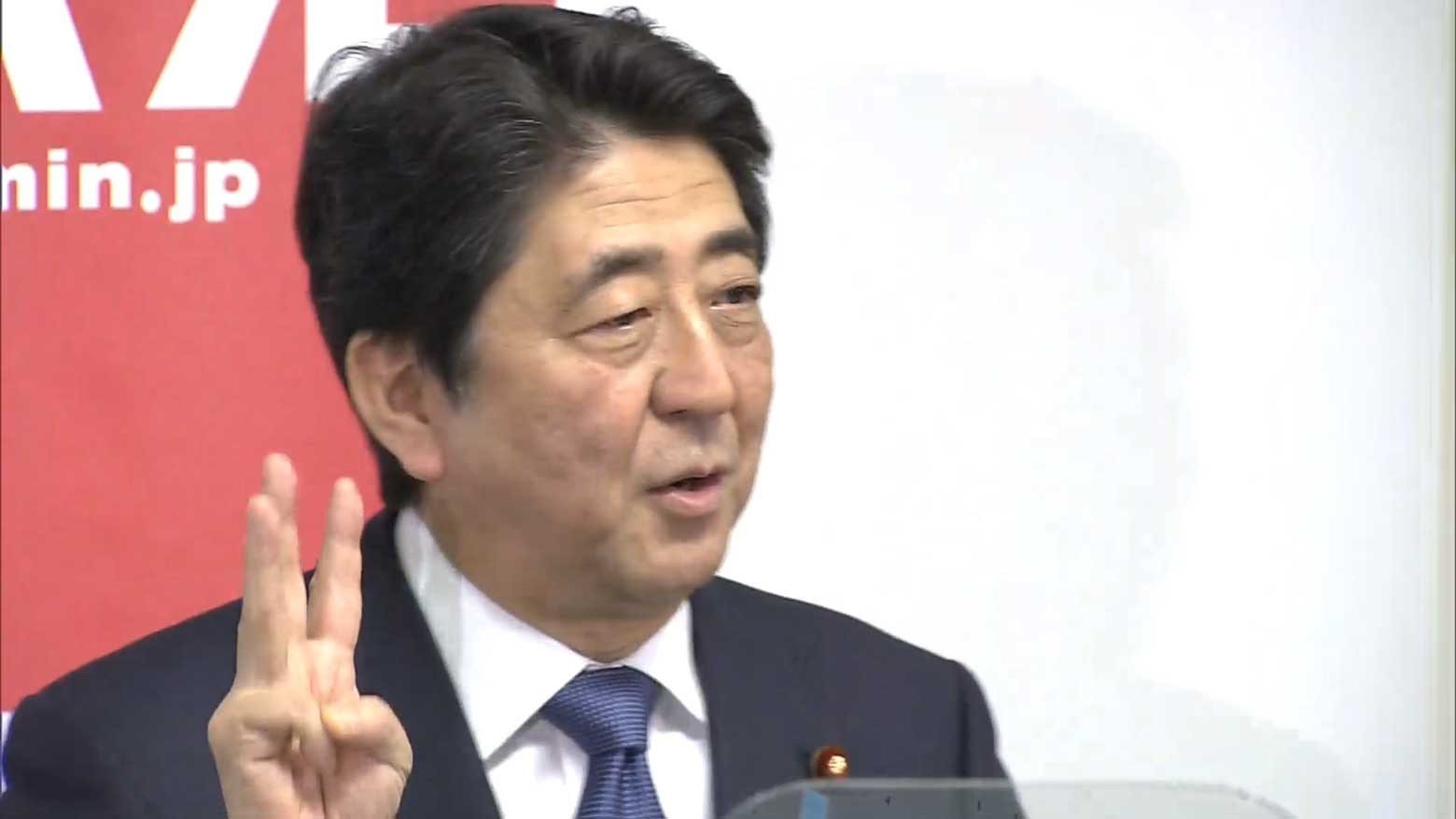Abenomics was pitched as a comprehensive war on stagnation. It consisted of three broad measures Abe described as "arrows":
- An expansionary fiscal policy built on heavy government spending to stimulate growth.
- An ultra-easy monetary policy that flooded the market with cash.
- Structural economic reform to create new sources of growth and boost productivity.
Economists say the monetary policy measure had the greatest impact. To carry it out, Abe tapped Kuroda Haruhiko to head the Bank of Japan.
All three arrows were credited with spurring a recovery in corporate earnings and rejuvenating the job market. Japan's GDP growth hit 2.6 percent in fiscal 2013.
But the trend didn't last. Growth in the following years remained mostly between zero and 1 percent, prompting skeptics to question the viability of Abenomics.
The BOJ also failed to hit its 2 percent inflation target. That mark was only recently passed when Russia's invasion of Ukraine caused global prices of oil and food to soar.
Now the Japanese yen has plunged, hitting its lowest level against the US dollar in more than two decades. Many economists attribute the fall to the two countries' differences on interest rates. The Federal Reserve started raising its rates to deal with soaring inflation, but the Bank of Japan has clung to its monetary easing policy.

Rating Abenomics
Opinions differ over whether Abenomics was good or bad for the Japanese economy.
One expert says Abe's policies revived the economy. Kinoshita Tomo, a global market strategist at Invesco Asset Management, says, "Before Abenomics, deflation was a fact of life for firms and consumers in Japan. Deflation really discouraged companies to raise wages and increase hiring because they were unable to increase the prices of their products and services. And wage stagnation was bad for consumption."
Regarding Japan's three decades of wage stagnation, Kinoshita says, "It's true that wages have remained stagnant even after Abenomics. But the number of workers in Japan increased by more than 4 million under Abenomics. So even though wages have remained stagnant, the Japanese economy has expanded considerably."

What's next?
Abe was a key supporter of Kuroda and his ultra-easy monetary policy. His sudden death has focused attention on a possible change in the currency market, especially the dollar/yen exchange rate.
Kinoshita suggests the yen could strengthen as an indirect result of Abe's passing. "Kuroda's term ends next spring," he says. "If market participants think Kishida will appoint a governor who won't adhere to Kuroda's ultra-easy monetary policy, investors may see a possibility of an earlier-than-expected tightening by the Bank of Japan. This could lead to an appreciation of the yen."
Kinoshita also pointed out the reactions to Abe's death from investors in Japan and abroad.
"Abe was a strong advocate of structural reform," he says. "This tragic event has led the market to believe there may be less pressure on Prime Minister Kishida to promote structural reforms. This is probably why the Nikkei index dropped by more than 1 percent after Abe was shot last Friday."
Kinoshita also referred to the recent election. "In addition to Abe's passing, the sweeping victory of the ruling LDP in the Upper House election could mark another turning point for the economy," he said. "Investors will be watching closely to see what policies are laid out in the coming few weeks."

